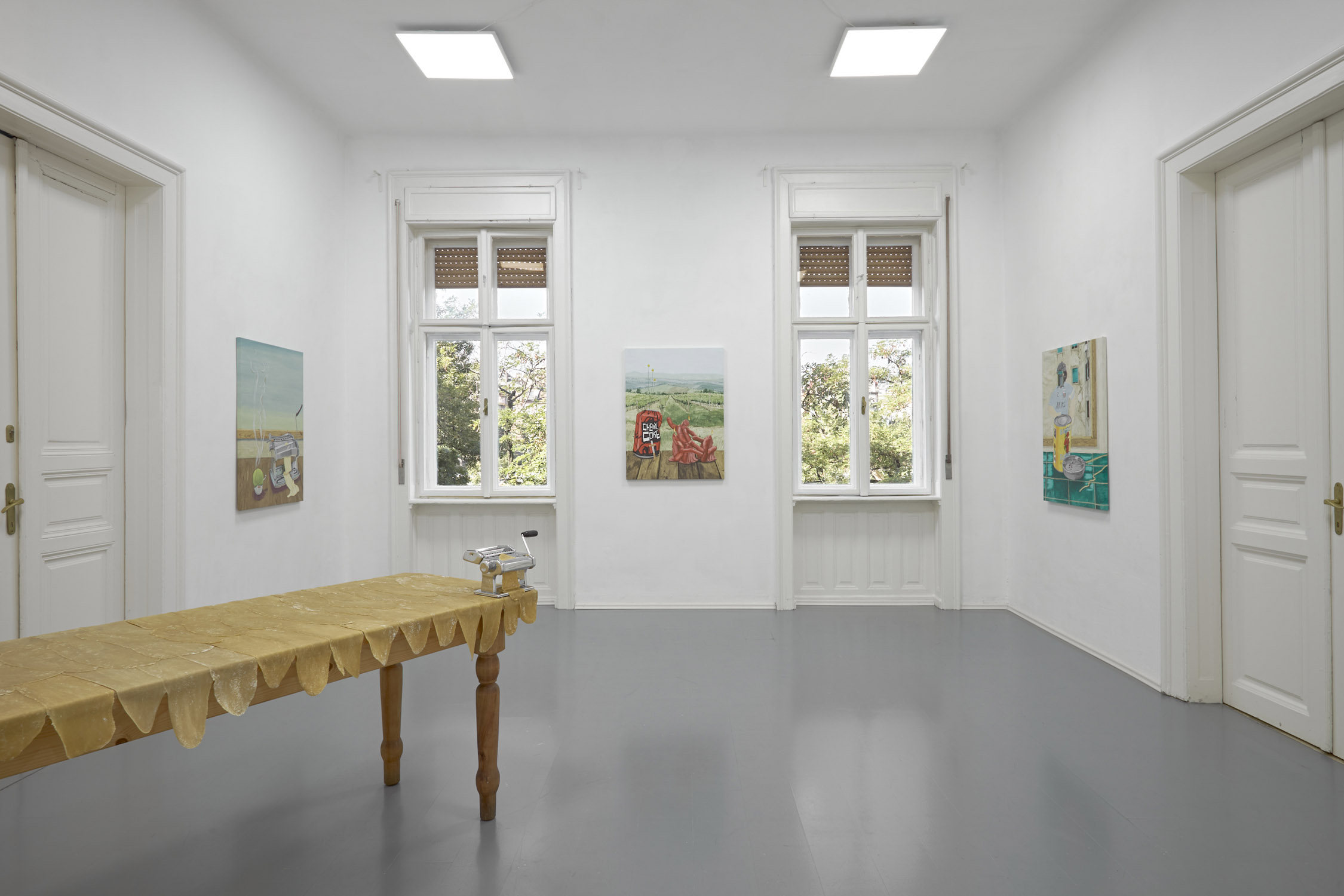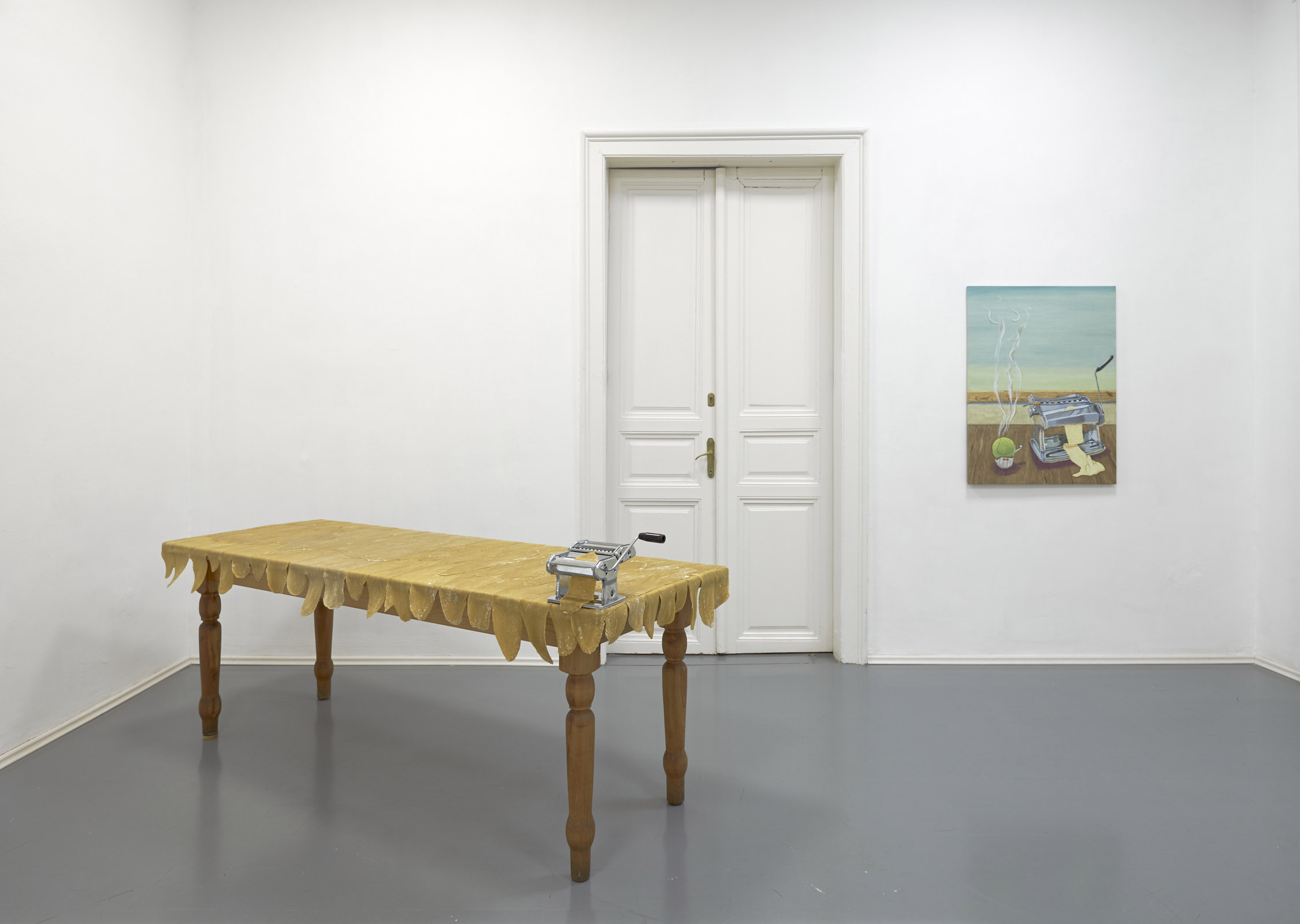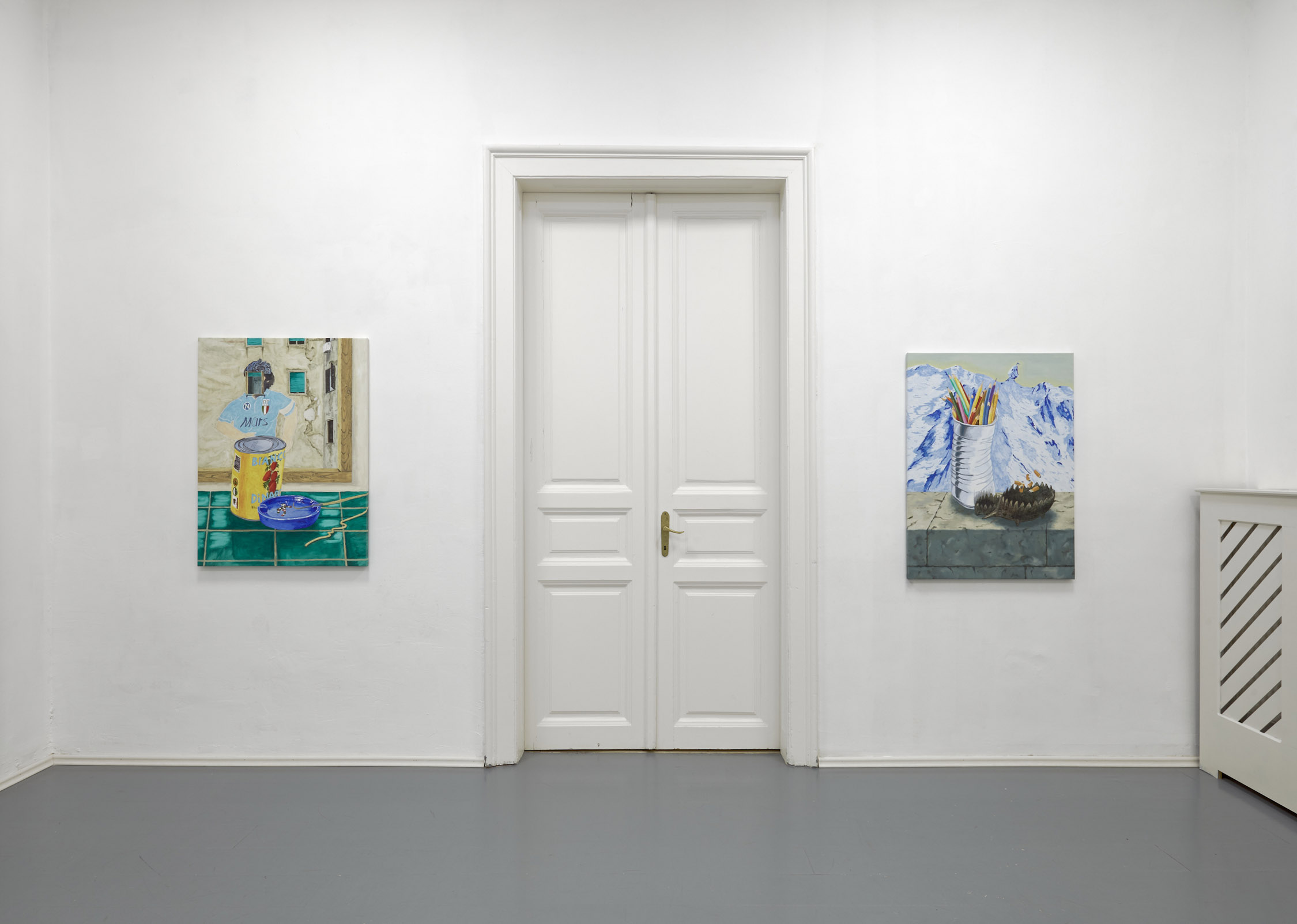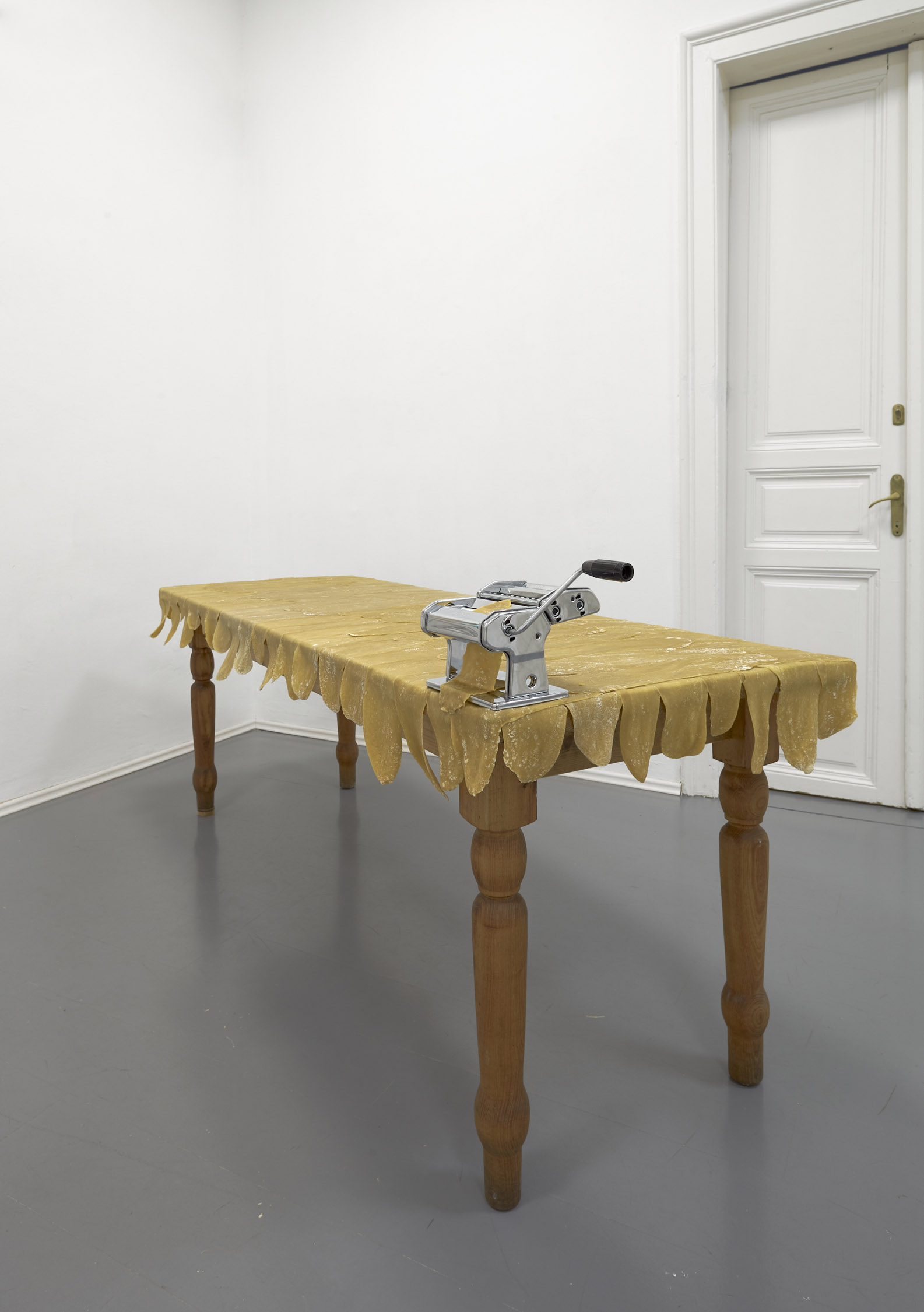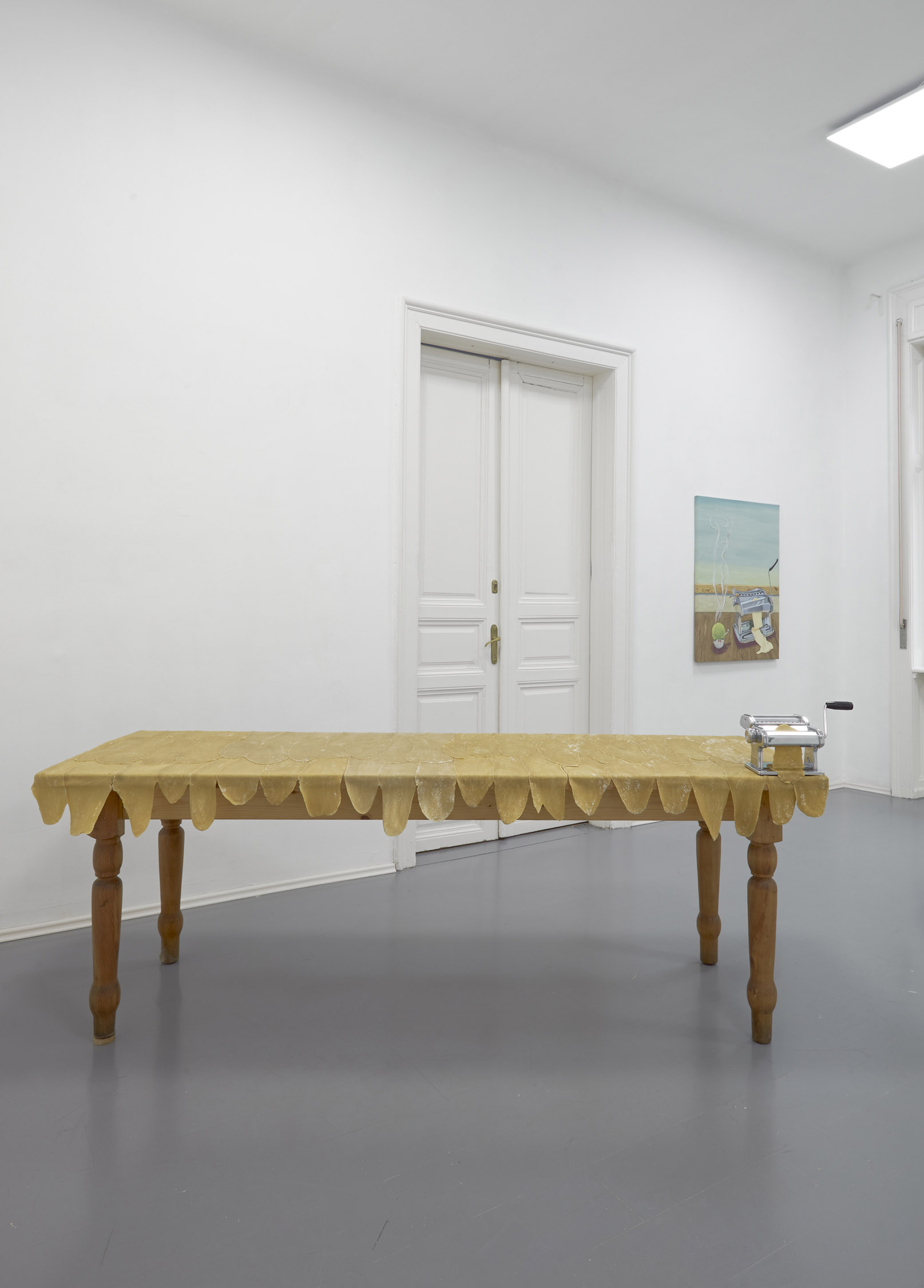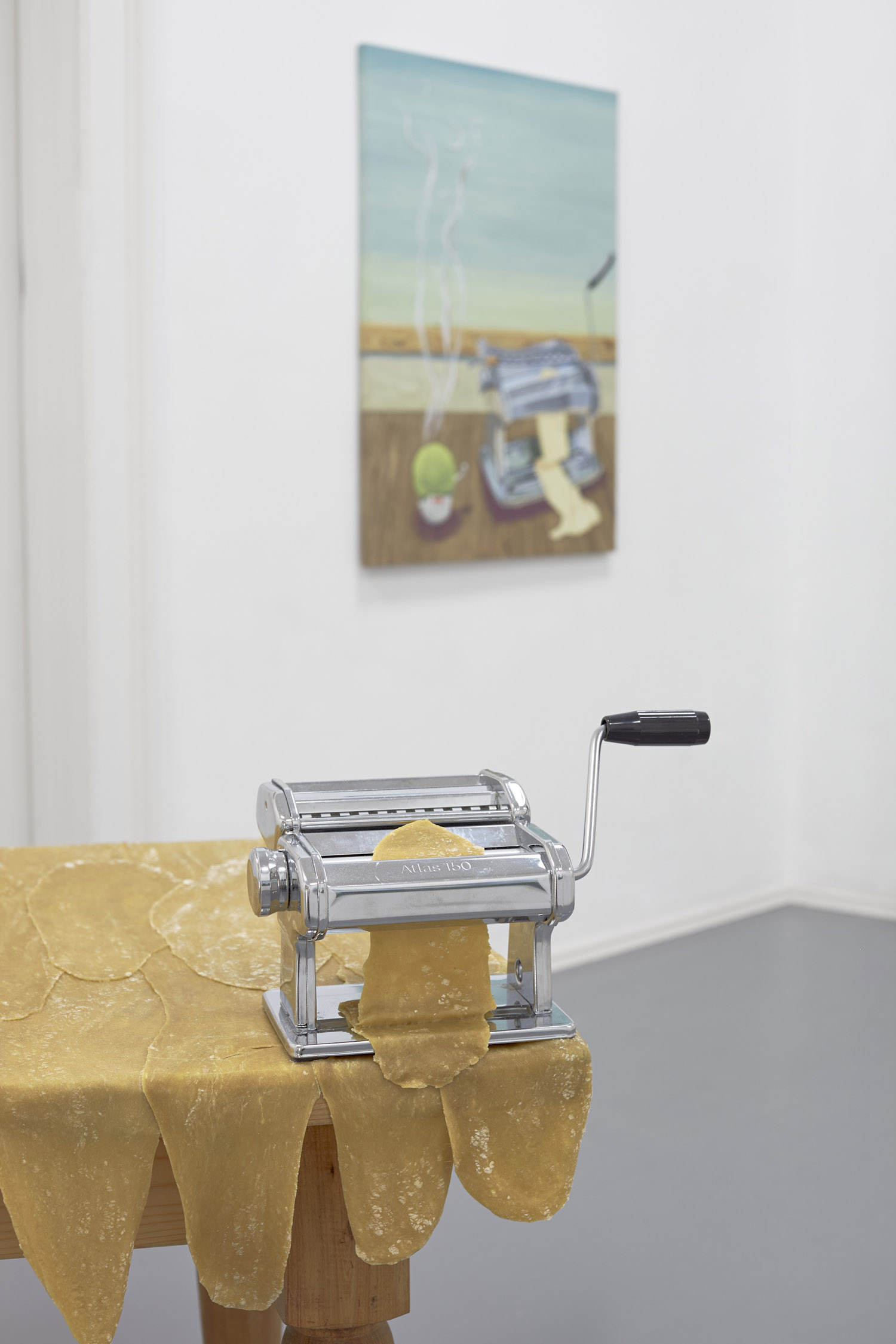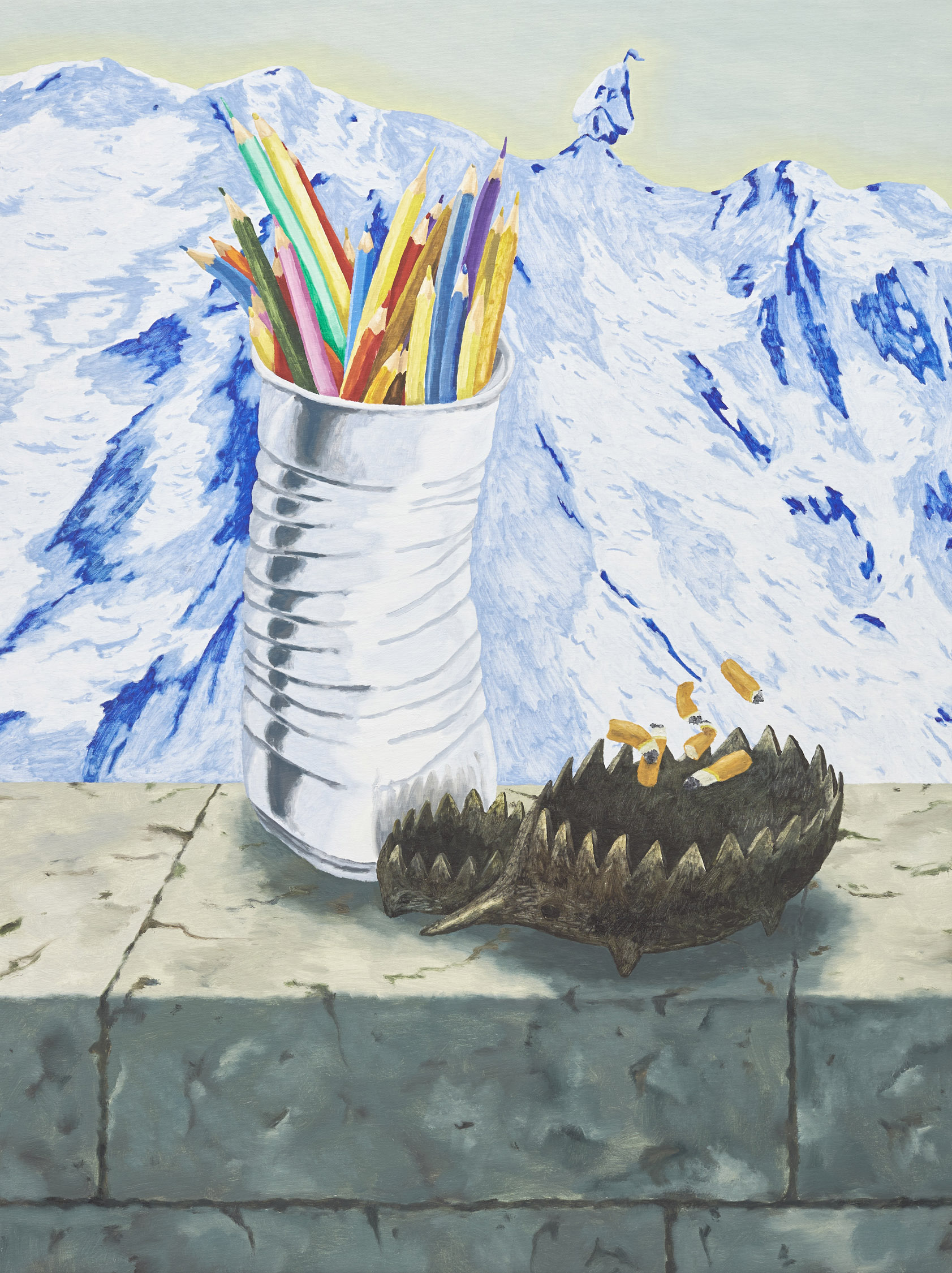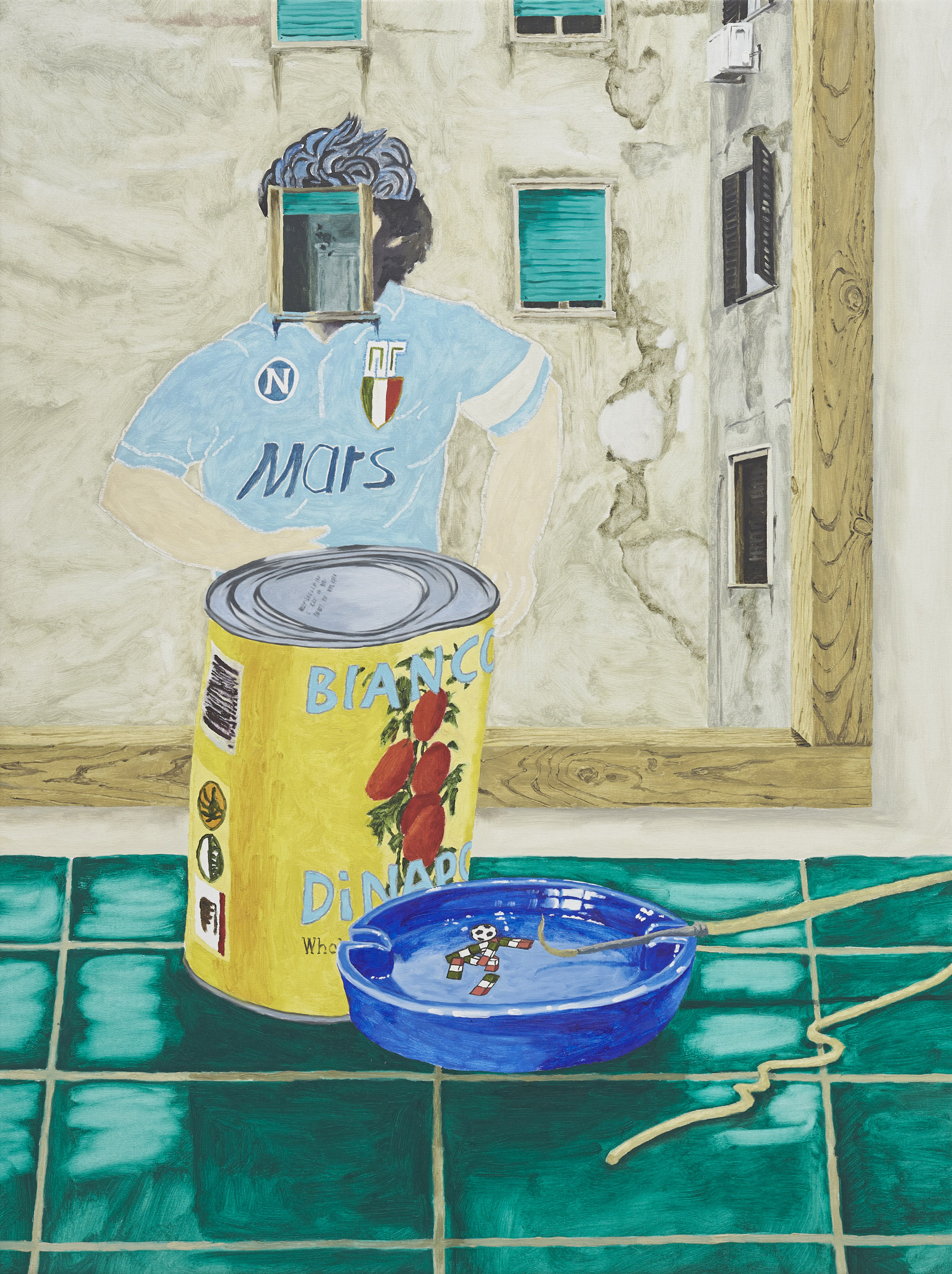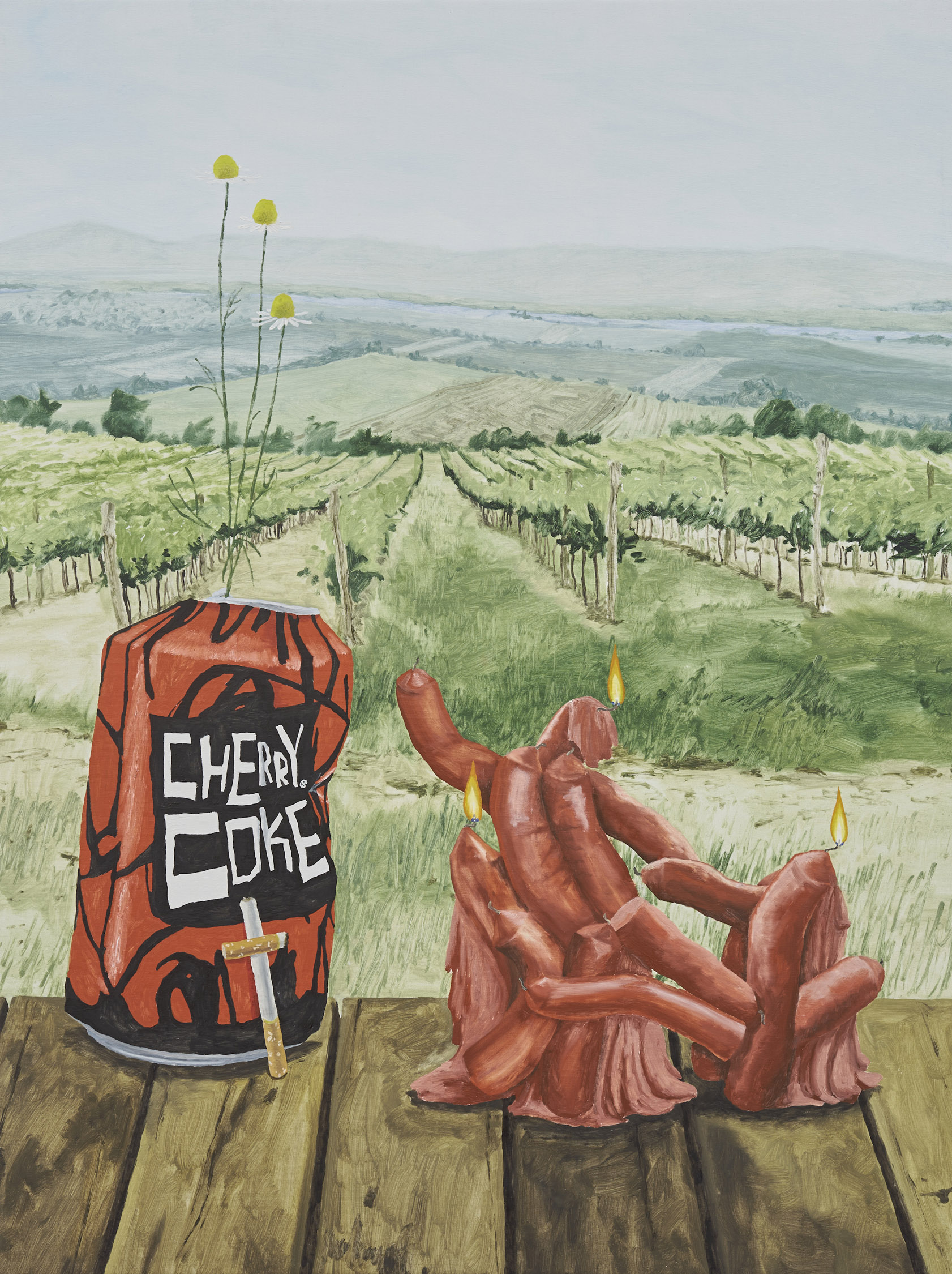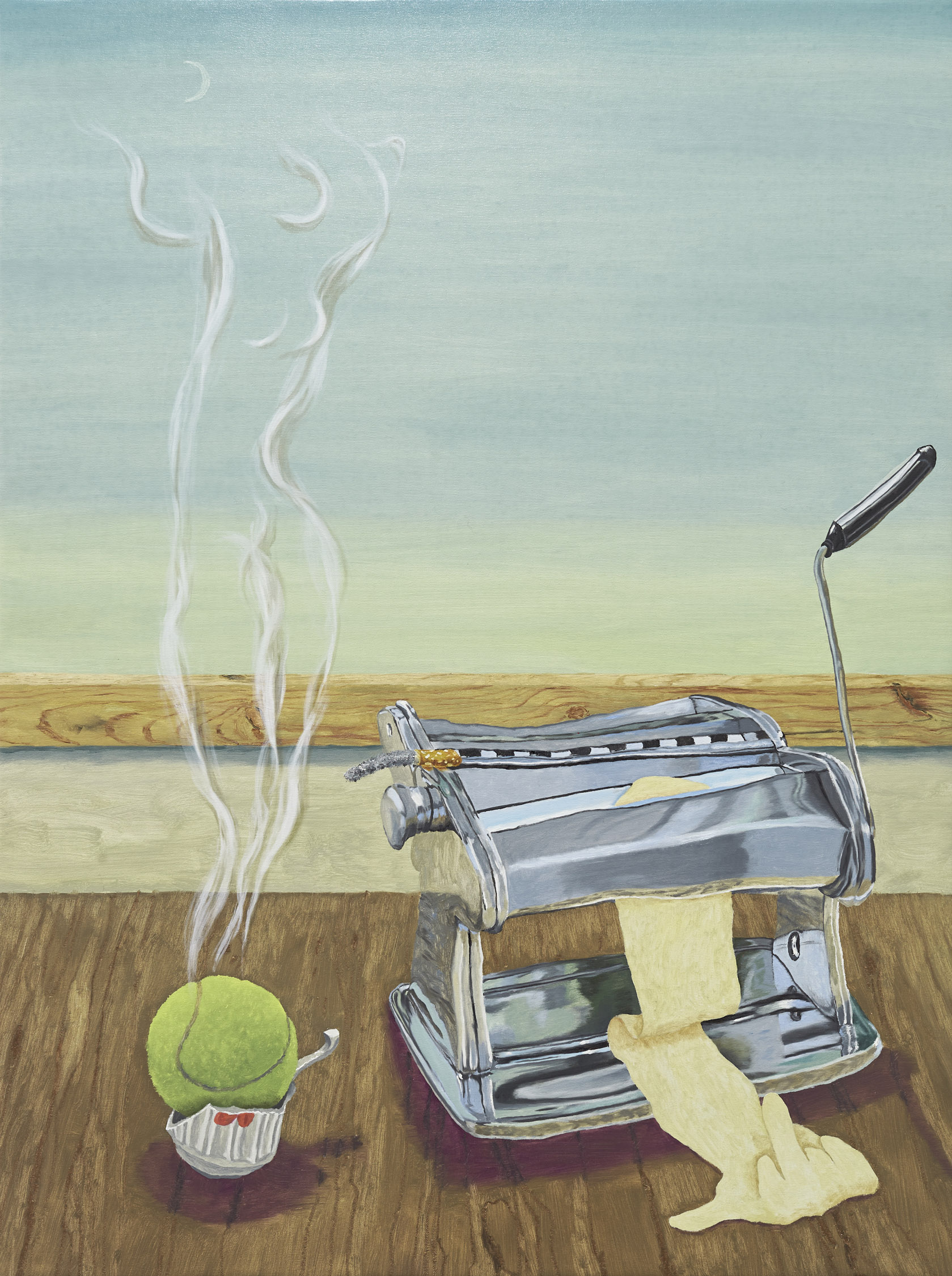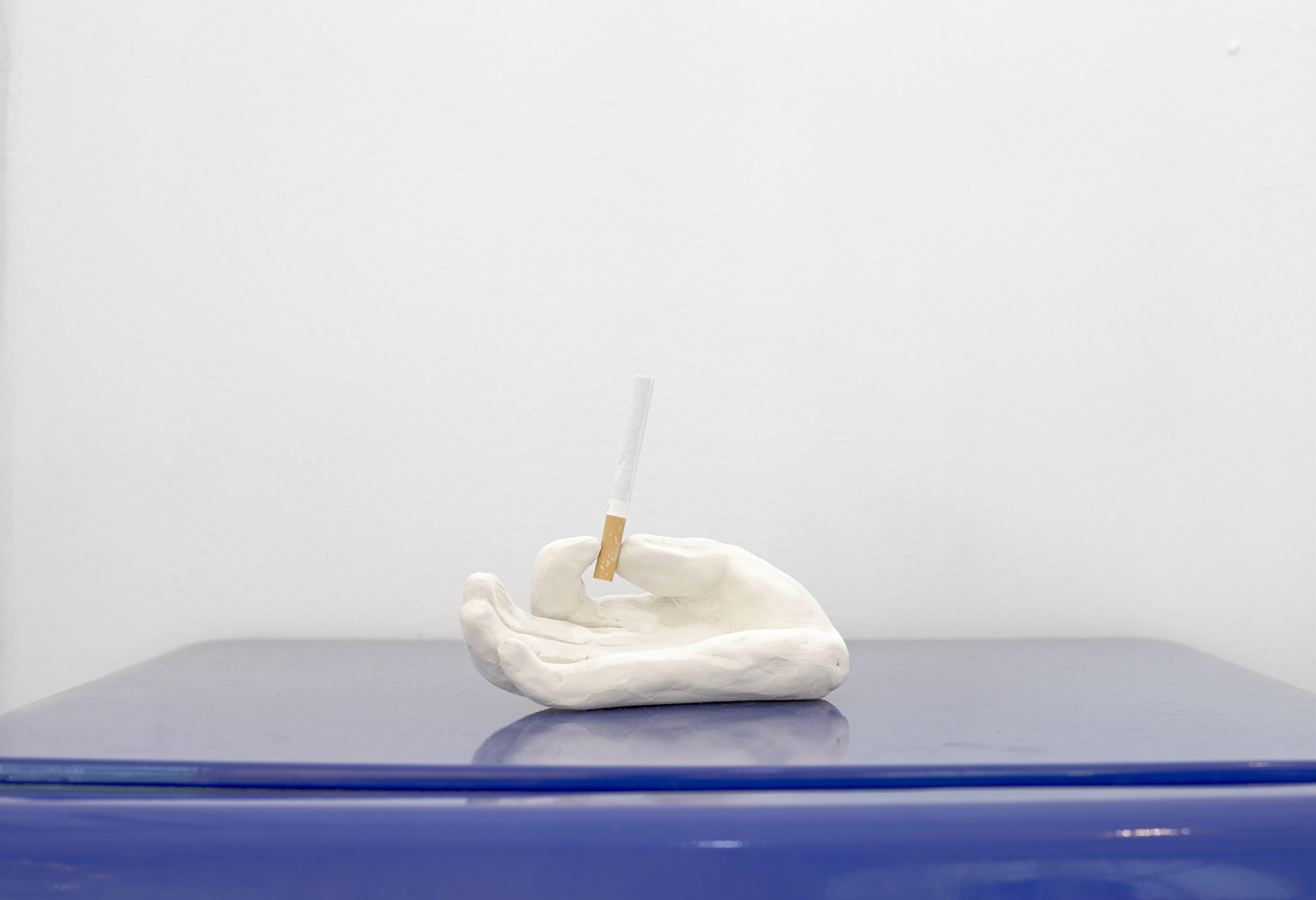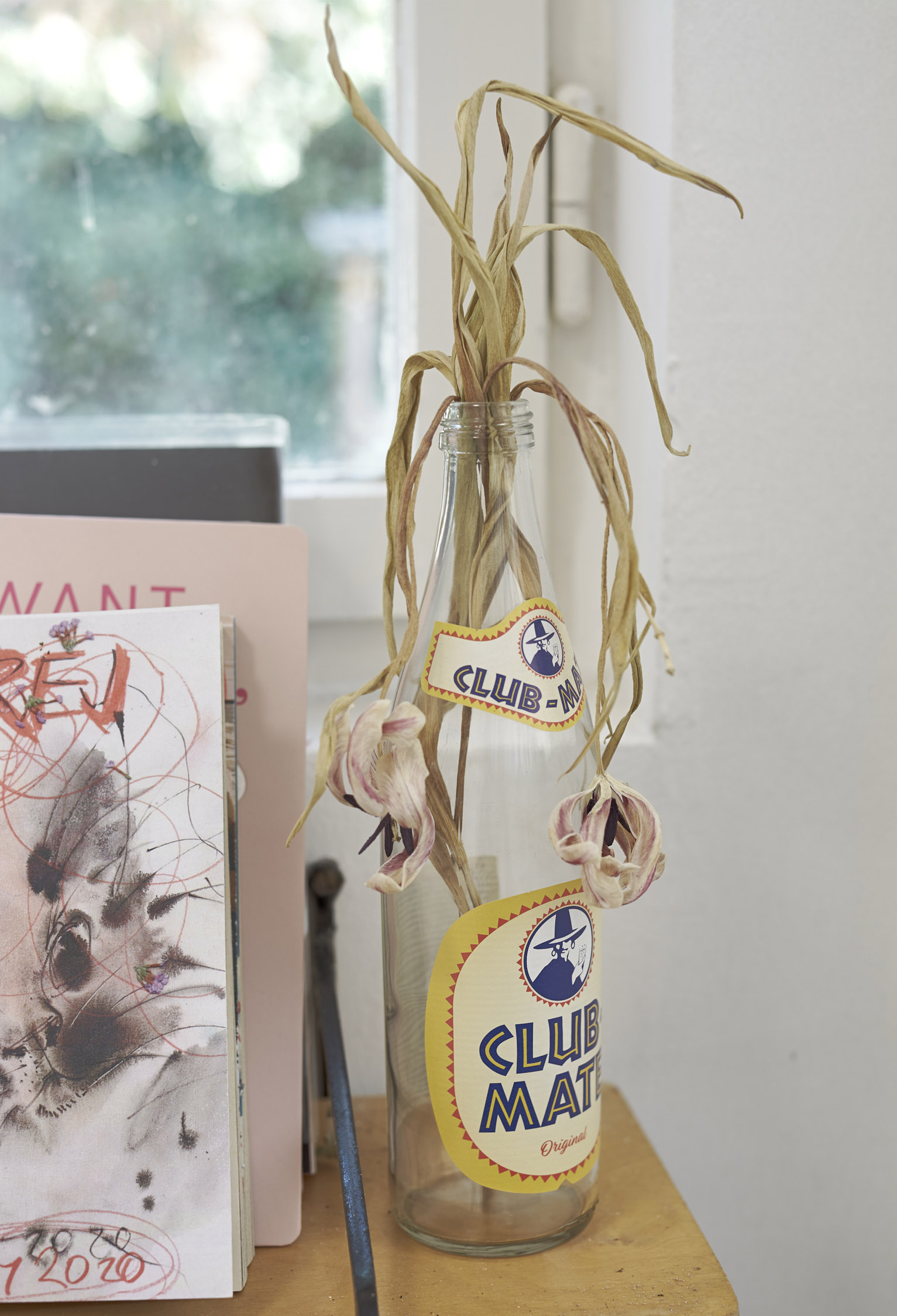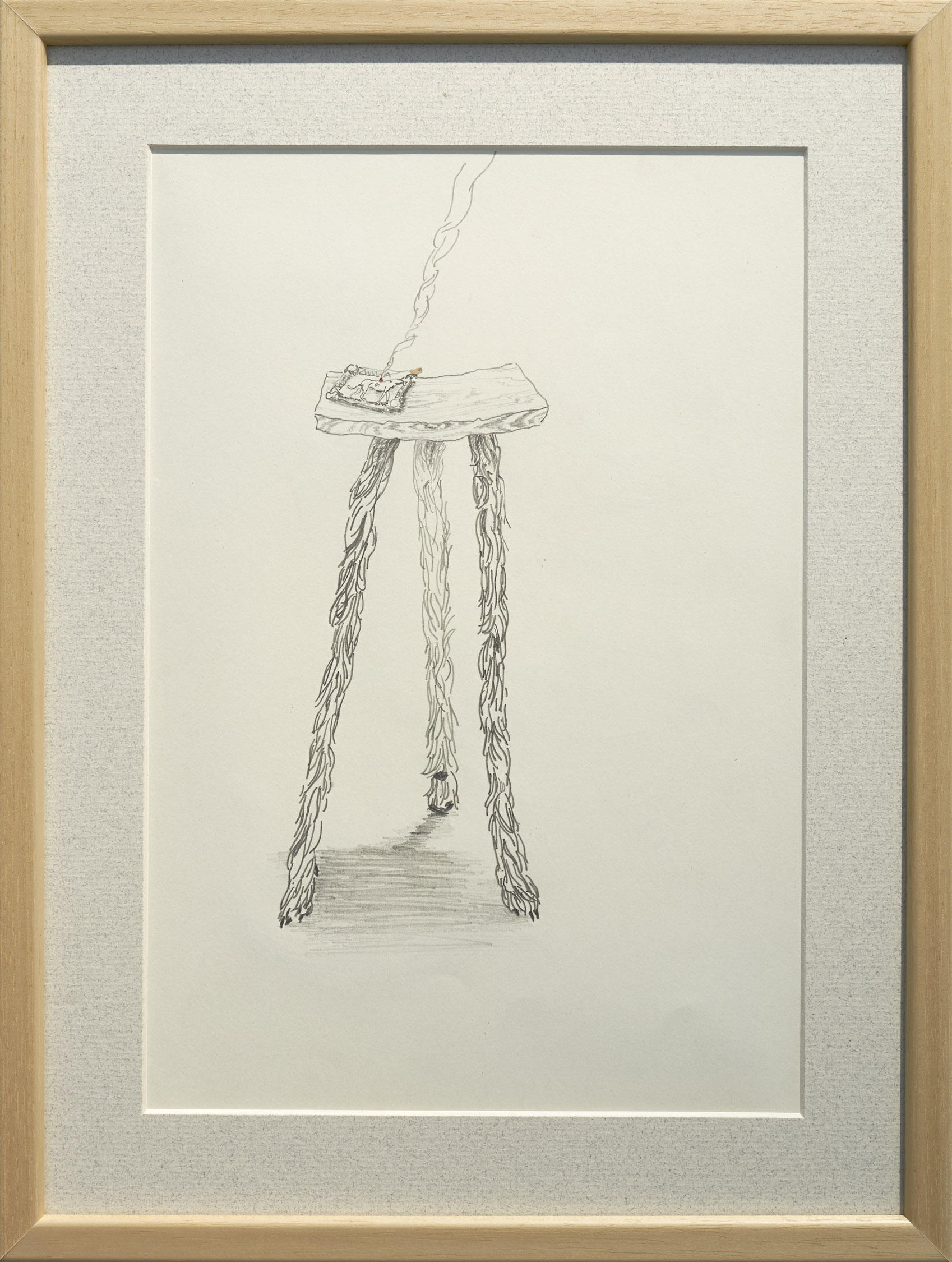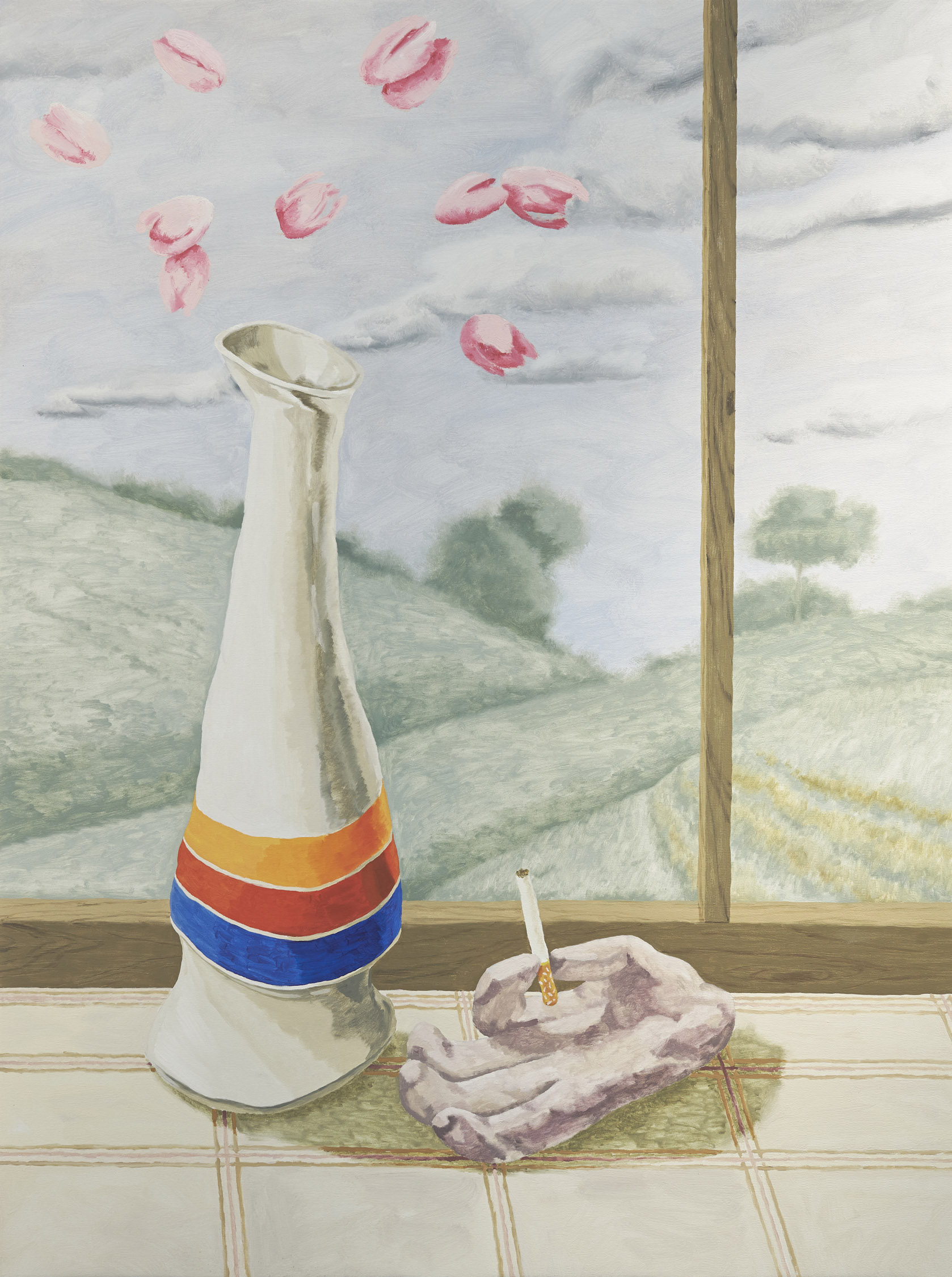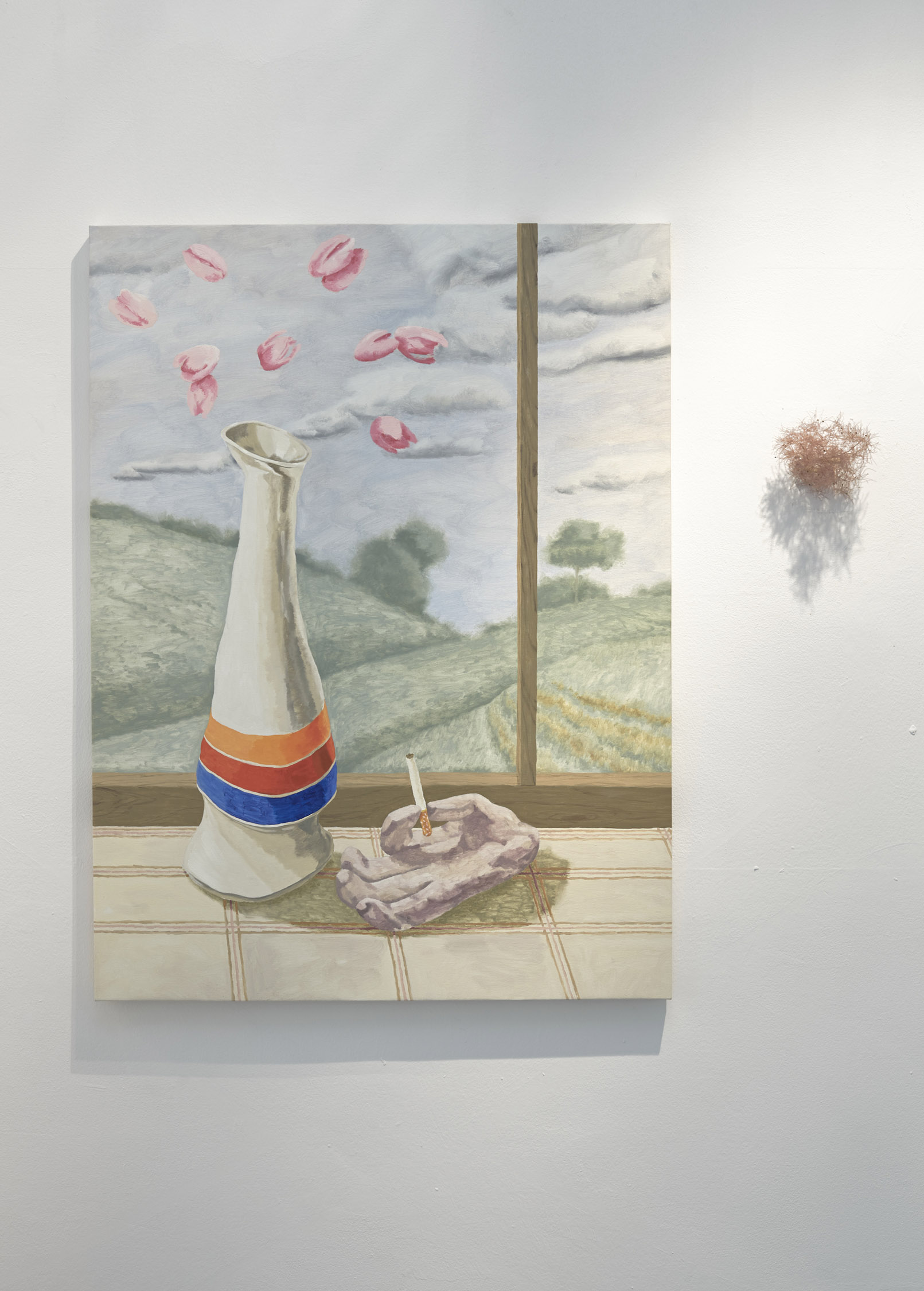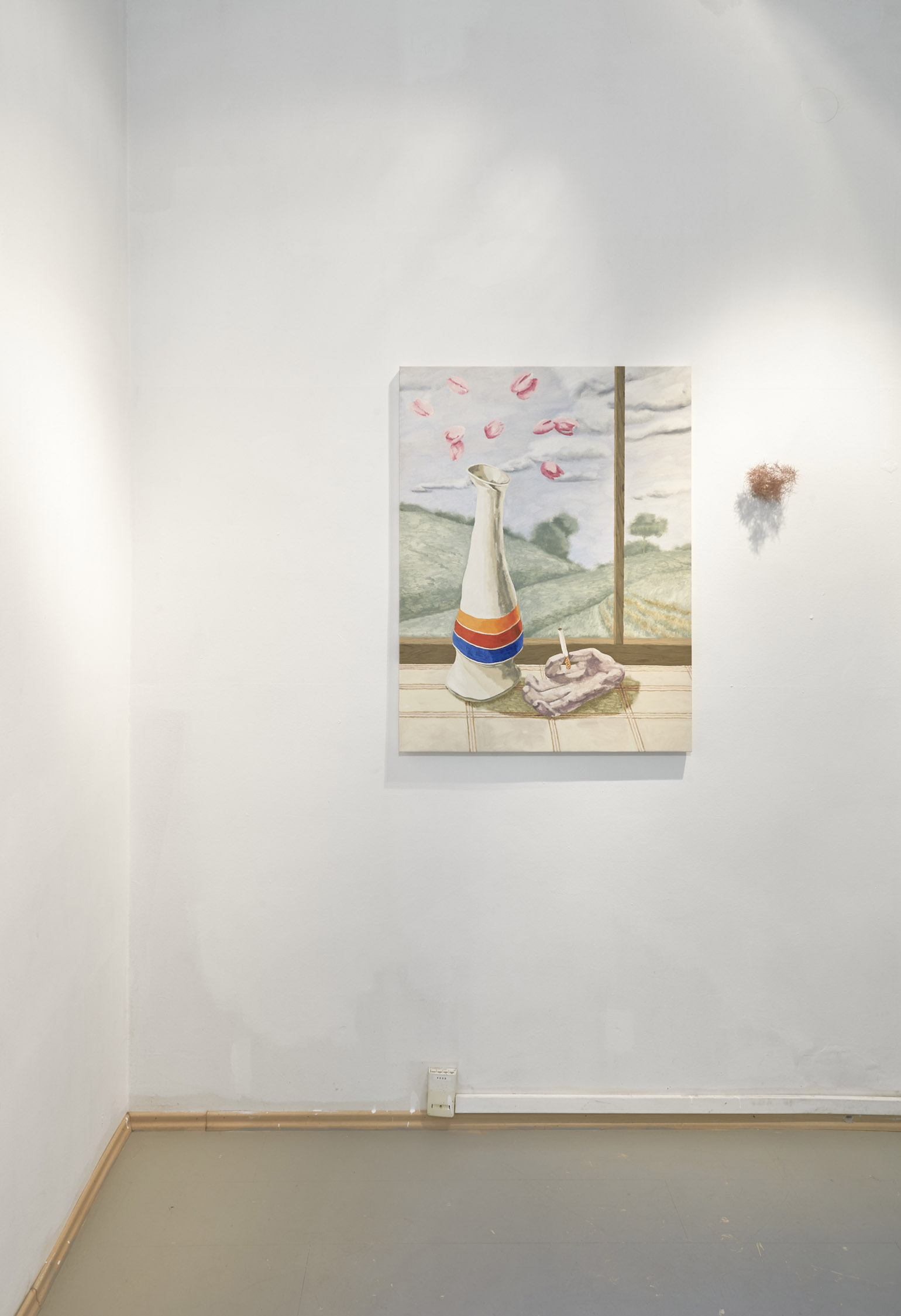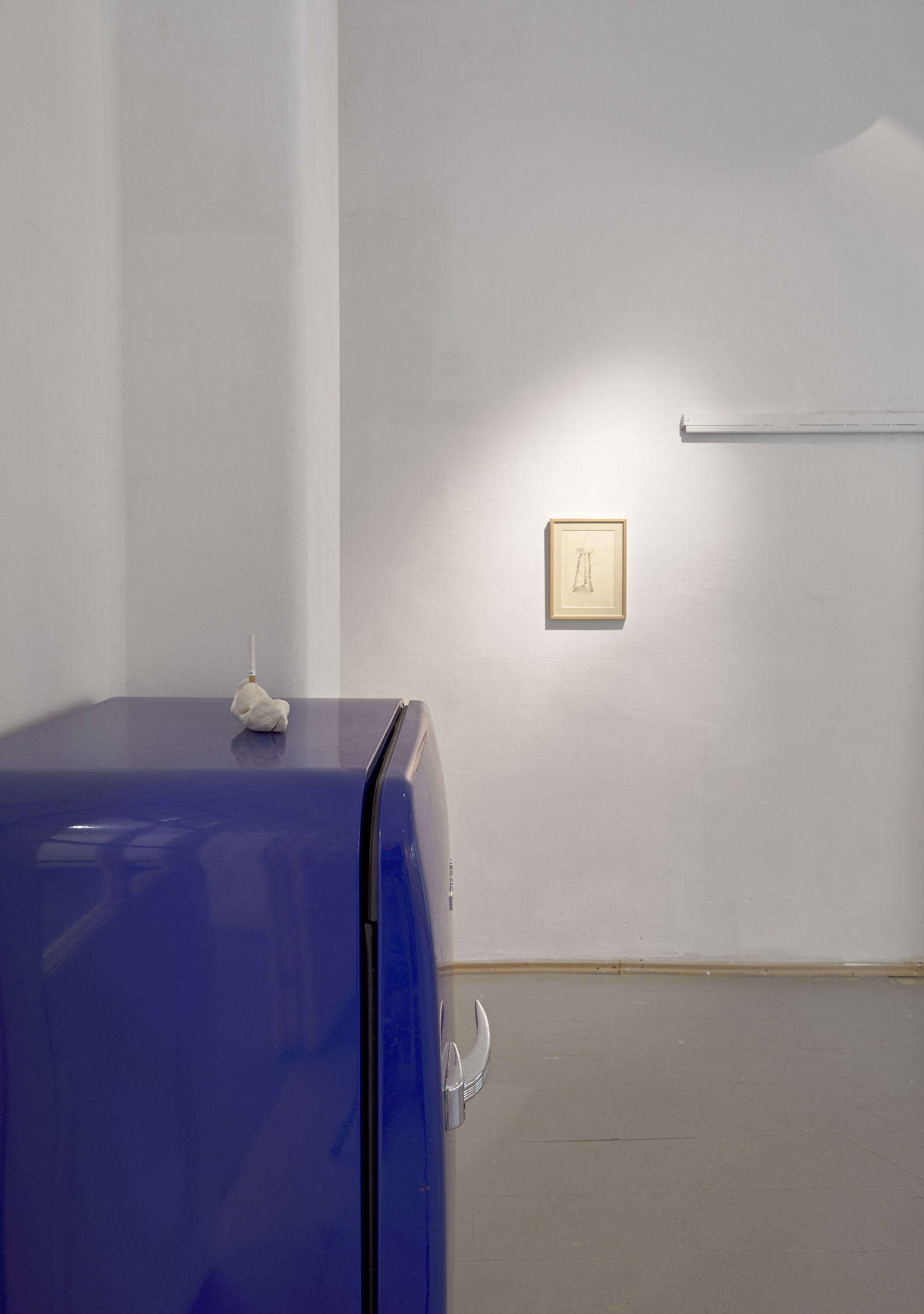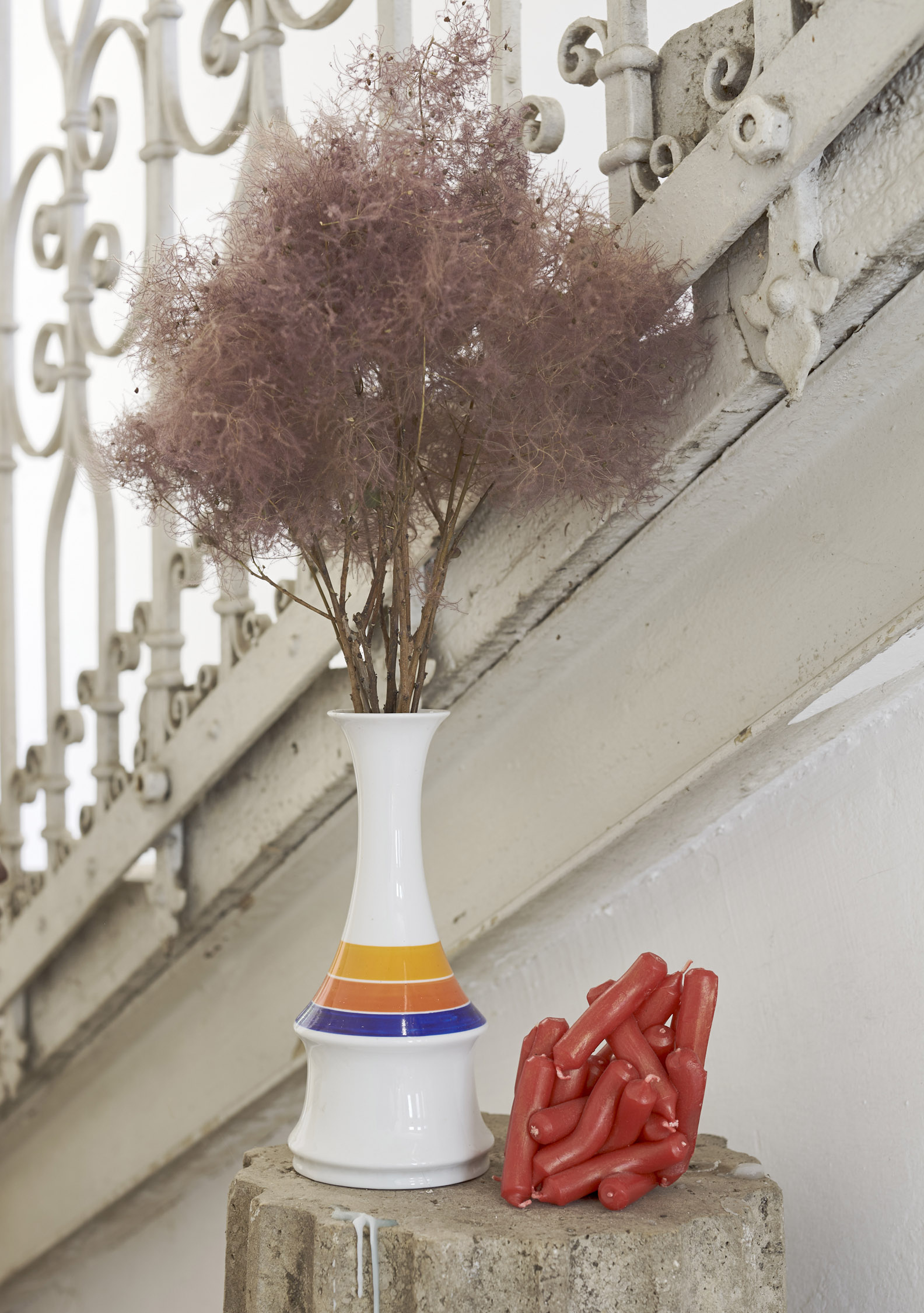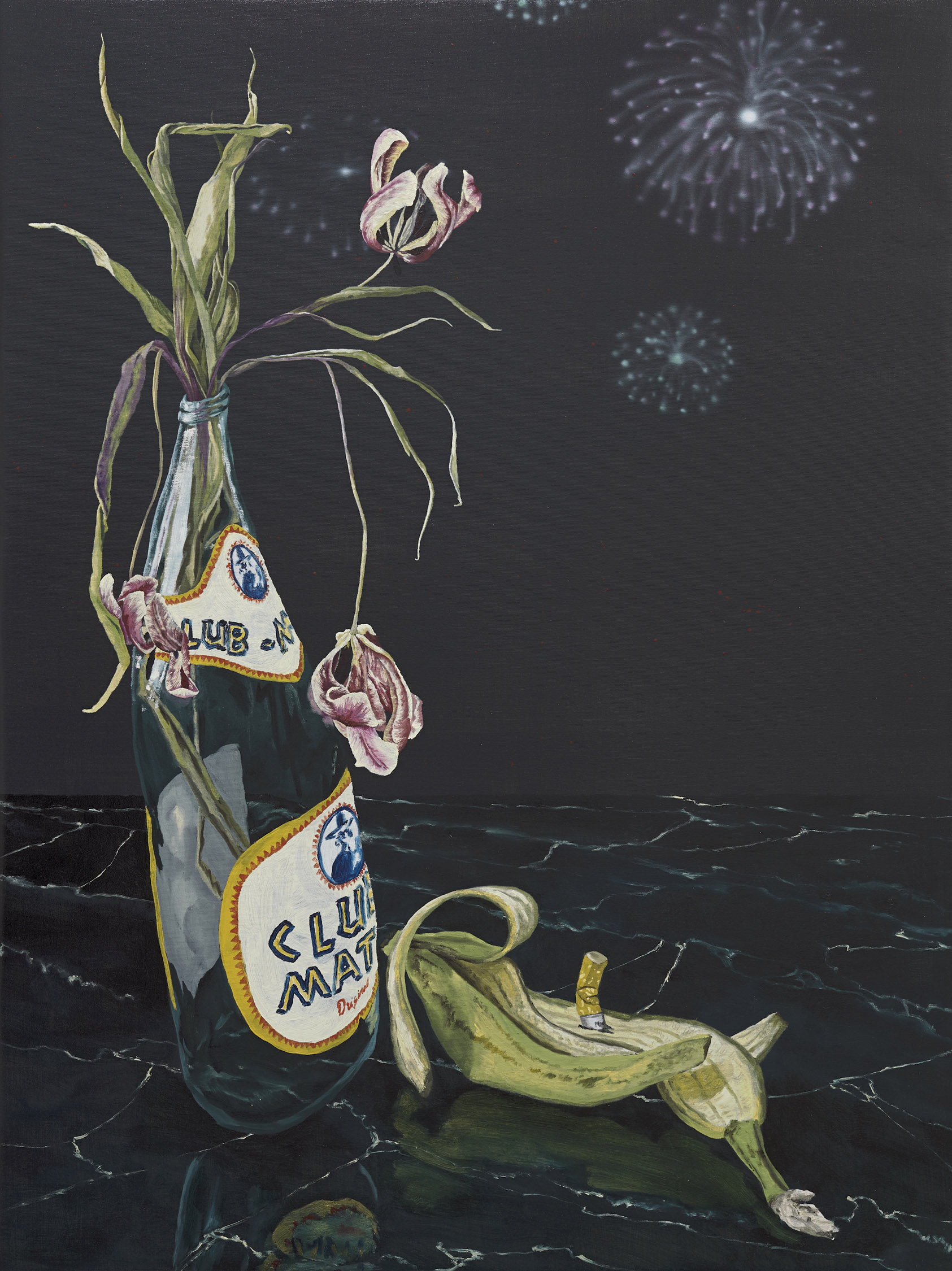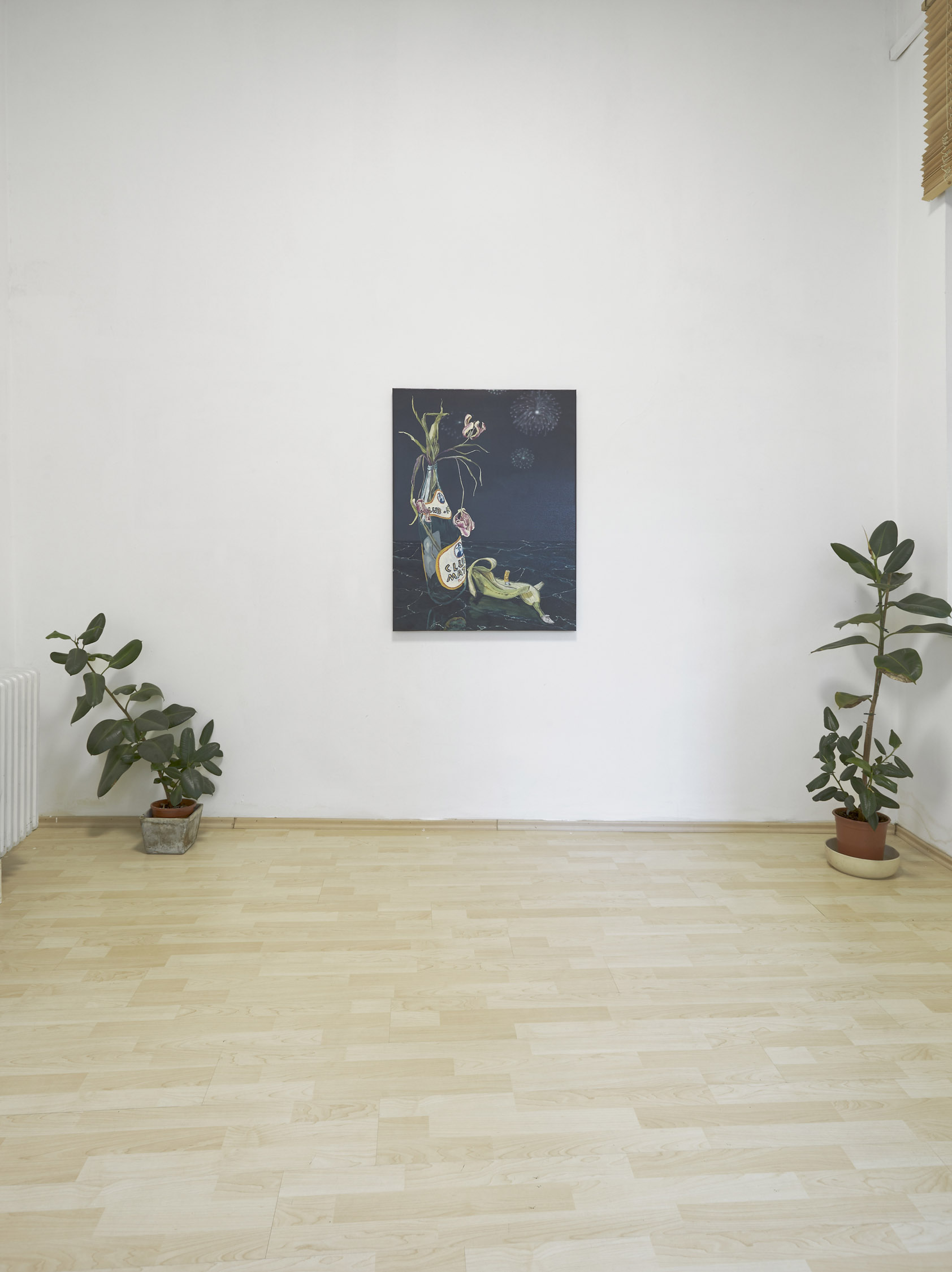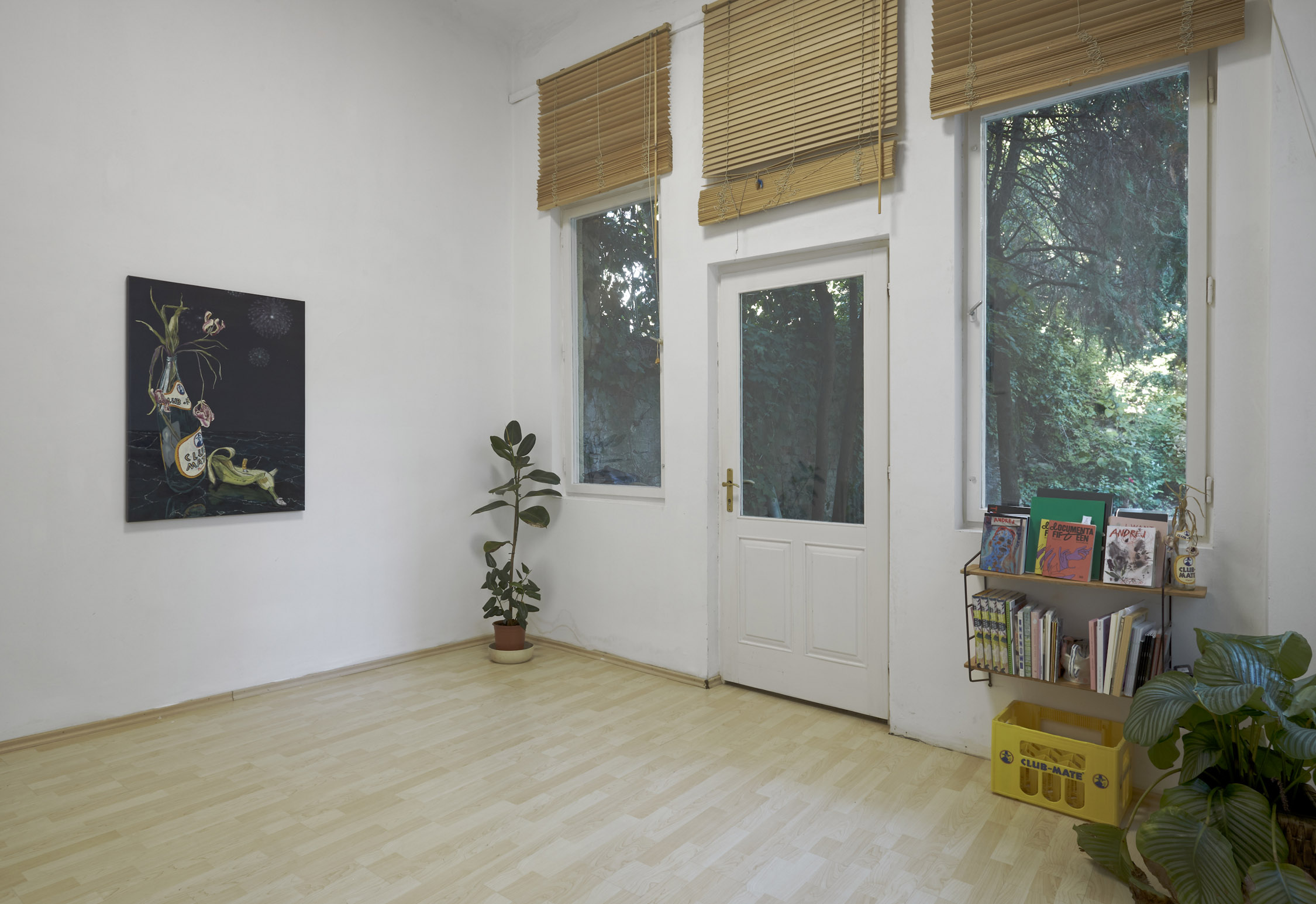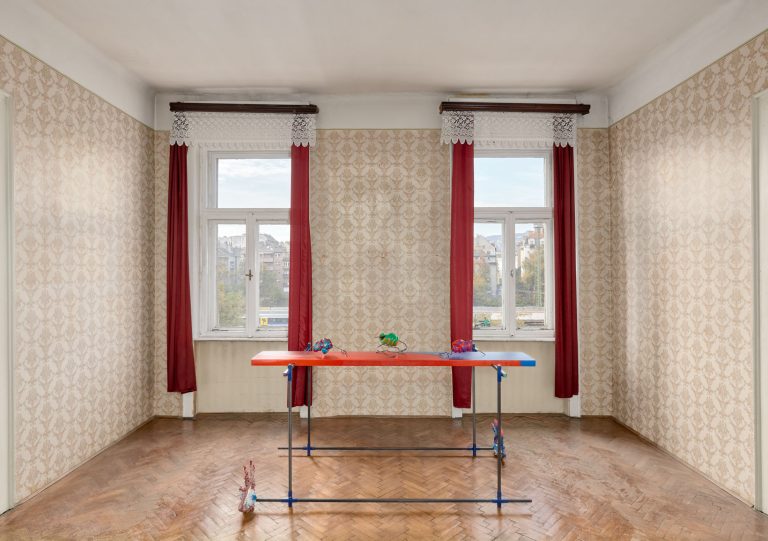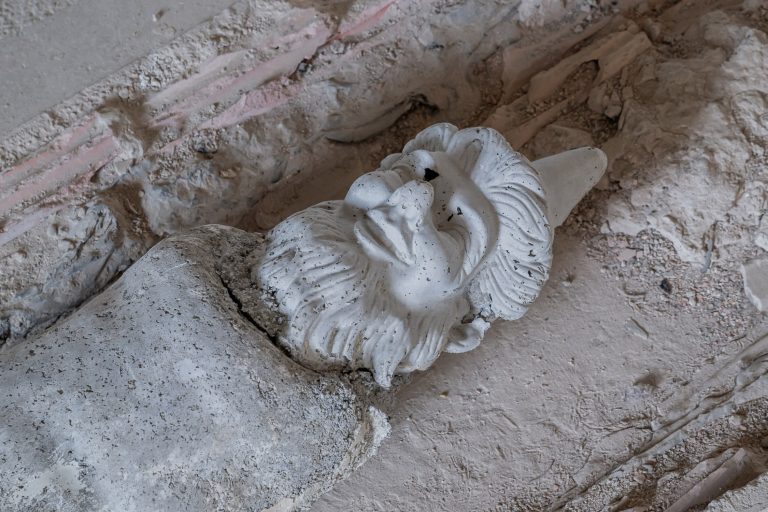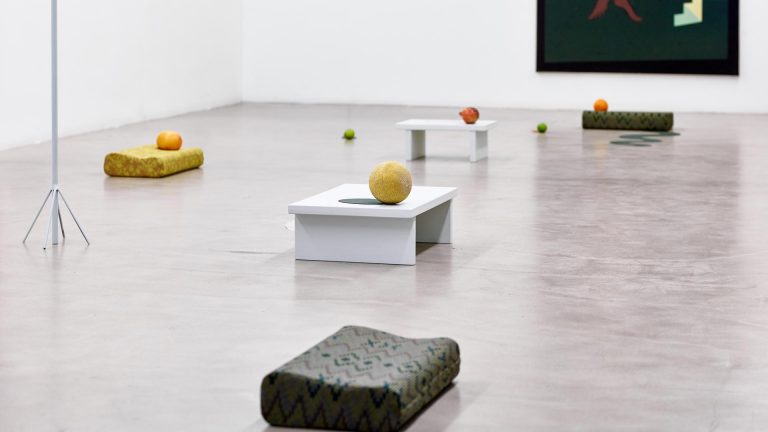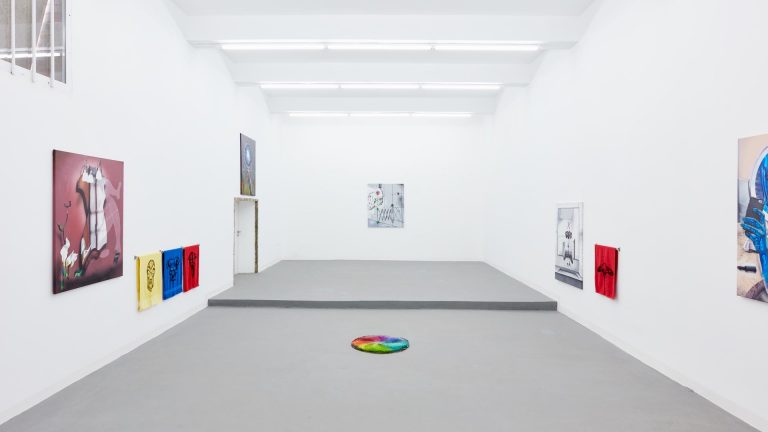Attila Bagi’s latest solo exhibition presents a new series of paintings rooted in his fascination with the overlooked, ordinary objects of daily life. These compositions, built from found readymades, bring together personal memories and cognitive history in unexpected ways. Central to the artist’s exploration is a deeply personal connection: the love of smoking cigarettes, a habit that threads through his works like a recurring symbol, anchoring fleeting fragments of perception and memory. In Bagi’s own words, “Finding the links between my childhood interests and my current creative habitus is a much more complex challenge. Perhaps the most basic attitude that characterised me then and still characterises me is a love of observation and curiosity about materials.” This curiosity manifests itself through the transformation of everyday objects into poetic, multilayered narratives. The interplay of the past and present is at the heart of these works. As Bagi reflects, “I am much more influenced by my perception of the present and by fragments of memory, or perhaps most of all by the magical relationship between the two.” This relationship finds expression in the painting Blooming Forever, where the circular pattern of fireworks contrasts with the withered petals of a tulip, paired with the unusual image of a cigarette butt in a banana skin. “The wilted flower, unlike in previous still-life paintings, is for me the constant in this picture, because even withered it is more magnificent and graceful than a firework display about to explode,” Bagi notes. Bagi’s works resonate with the ideas explored in Donald Judd’s essay Special Objects, drawing attention to the significance of everyday forms and their capacity to transcend the mundane. Through his process, Attila Bagi invites viewers to share in his “love of observation,” revealing the poetic and transformative power of the everyday.
-Péter Bencze


